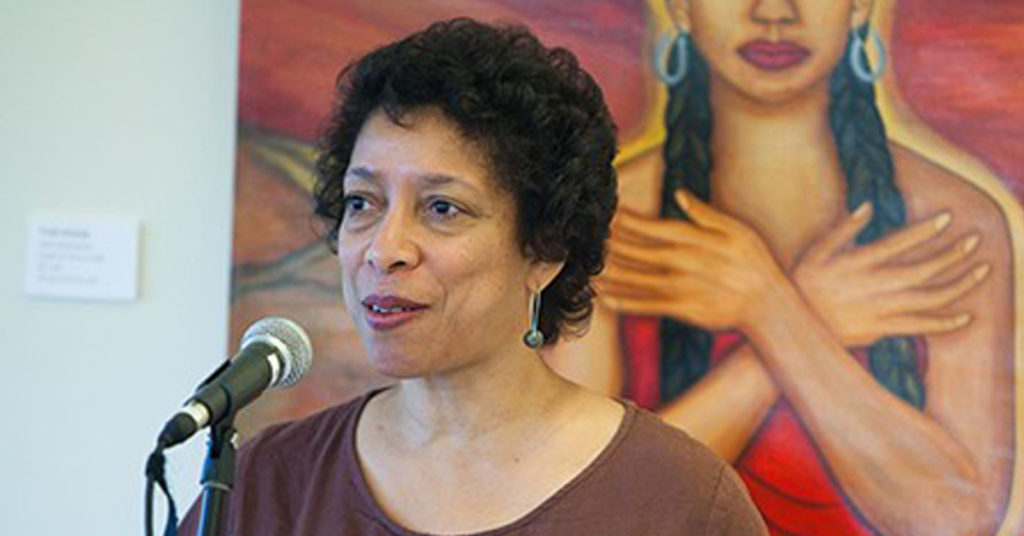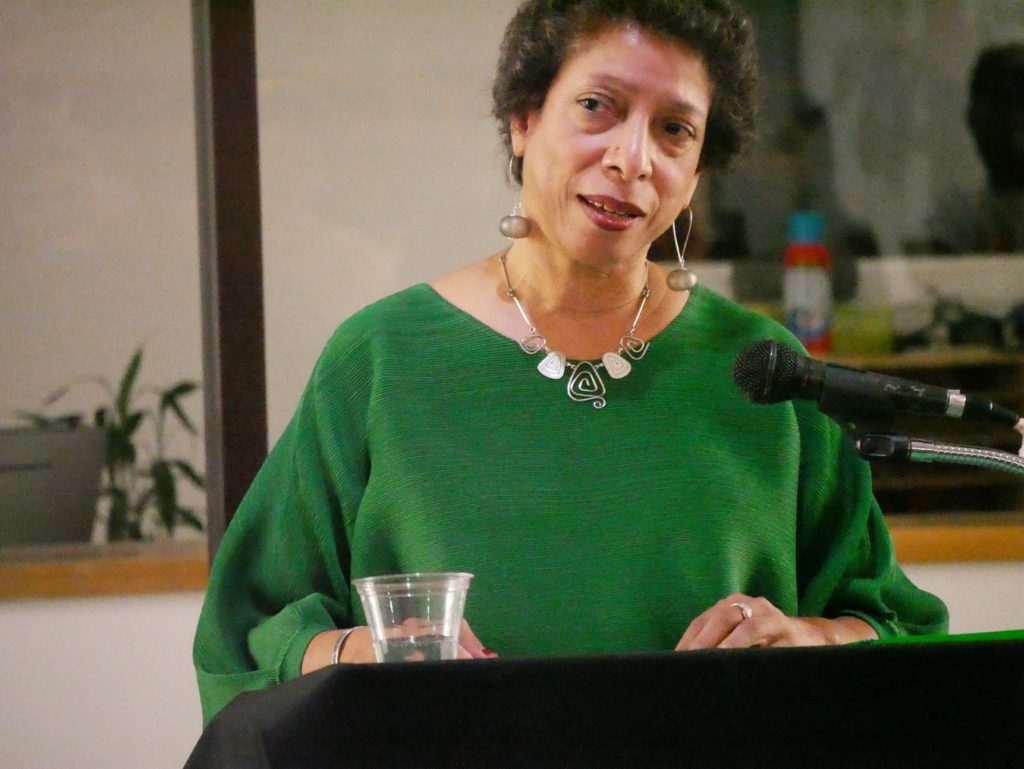Profile and Interview with Lynne Thompson: Los Angeles Poet Laureate (Part 1 of 2)

Before I moved to the West Coast, Los Angeles loomed large in my cultural landscape. It is a city in which stories are written, filmed, distributed, and as such, its local specificities imbue a great deal of the media I consumed growing up in the Midwest. Living here, I’ve begun to learn some of the complex stories that weave together the history of the place that are often excised from mainstream culture—stories of conflict, migration, marginalization and flight, among others. Luckily, L.A. has a rich history of poets and writers, who have for centuries written, spoken and sung the complexities of this place and its myriad histories – striving to tell truths that linear reason is unequipped to relay.
Reflecting on the story-telling capabilities of poetry in an email exchange with me (the rest of which is coming soon!) 2021 Los Angeles Poet Laureate, Lynne Thompson, articulated the unique role of a poet in relation to truth: “that’s the goal of most poets: to tell a truth that may defy reason and logic because we’re dealing with humanity, that thorniest of ambitions—to be humane.” Poetry offers a medium in which to create truth through feeling, in all of its contradiction and complications. As poet laureate of Los Angeles, Thompson has been officially recognized one of the leading voices in the chorus that sings the stories of Los Angeles, a song that is imbued in her case with the legacy of myriad other spaces and places.
Thompson, a Scripps College alum and current Chair of the Board of Trustees, was featured as an interviewee in volume 8 of Foothill in 2018. As Poet Laureate, she serves as an ambassador for the literary arts, specifically poetry in the City of Los Angeles, although it is obvious from her resumé – Thompson serves on the board of directors of Cave Canem and the Los Angeles Review of Books, and is a guest co-editor for Spillway Poetry Magazine, for example – that bringing art and creativity into the world have long been passions of hers.
Thompson spent years as a litigator before deciding to devote her career to poetry, and quickly won praise and renown for her writing. Her first book, Beg No Pardon, published in 2007, won both the Perugia Press First Book Award and the Great Lakes Colleges Association’s New Writers Award. She released her second book, Start with a Small Guitar, in 2013 with a Los Angeles-based press, What Books, and her most recent Fretwork (2019), won the Marsh Hawk Press Poetry Prize. A commonality through Thompson’s writing is her attention to the way that the past continues to live within and create the present – through memory, stories, families, desires. In an interview with Poetry.LA, Thompson reveals an animating question of Fretwork: “How did we turn out to be this particular family?” This question bends into different versions in different poems through her oeuvre – How did I come to be this particular person? How did this place come to be what it is?
A talented essayist as well, Thompson has written about her formation as a writer—and the many ways in which her poetic sensibility and relationship to language are informed by the various histories that intersect within her family, her body, her experience: From “To Blackness”:
………I don’t know much about my native blackness;
my daddy, he say Igbo, the only word he can give me, but it’s the only word
I need to get the old folks to remembering that in Igbo ututu is morning,
abali is night, and in any mirror, my ihu, my face, is always black.
Thompson’s work both recalls and reckons with her particular history as an adopted child of immigrants from St. Vincent and the Grenadines who has grown up and still lives in Los Angeles. The particularities of her stories, told through specific sounds–“calypso and steel drums/a little Rasta and Bob Marley for us young’uns”—and images—“Daddy, nutmeg- /colored and clad head-to-toe/ in his all-whites, came to play /cricket”—weave the various threads of her ancestries and histories into a complex harmony that represents the complex legacies of migration, diaspora, tradition and settlement that are so integral to the story of the city of Los Angeles. From “Song for Two Immigrants (for my parents):”
To me, you were the Grenadines,
the Anglican Church, and a cricket match every Sunday,
and every Sunday, you were Fort Charlotte, the Vincy Mas,
and blue tide pools.
One of the things that makes Thompson’s words resonate so thoroughly is, I think, their specificity of sensory experience and that experience’s simultaneous movement and connection to place, often created anew in sound. Sound is a medium Thompson works within masterfully. Thompson can both create and describe the music of her home, her family, an imagined conversation, a sense of heritage. In the announcement of her new role as poet laureate, Thompson reads “Red Jasper,” a poem rich with sensory experience of Los Angeles – the sound of car engines, scent of jacaranda, layers of smog:
Swift coronas and vintage Mercedes-Benz’s serenade
Piston strumming piston as they cruise Highway 134
…
Every driver stops by for cops and 18-wheeled vehicles
Until they loop the river Los Angeles covered with concrete and wrapped under a stubborn scent of smog, last bloom of jacarandas, and can’t squeeze a drop of rain until tomorrow.

As poet laureate, a variety of initiatives and institutions will benefit from her varied expertise, as she will be an integral actor in the city’s efforts to establish poetic and creative outlets for Angelenos. Despite the dizzying list of responsibilities listed above, Lynne Thompson generously offered to participate in an email interview exchange with me, in which we discussed her work, finding time for creativity in any profession, forming community in the COVID era, and what is in her reading pile. Stay tuned!
—Lilly Fisher
Share